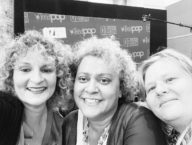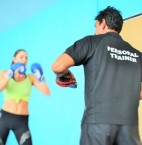Today I would like to talk to you about your health and wellbeing during a crisis.
When we talk about health and wellbeing we often refer to our physical and emotional health. But in response to the COVID-19 pandemic, we also know that our social and community wellbeing are being impacted. The reason these two areas are being affected is because of the countries response to lessen the spread of the virus.
So what can you do as individuals to ensure you are being responsible for our health and wellbeing during this time?
And what does your social and community wellbeing look like in this space today?


I’d like to start with you focusing first on your responsibility. The idea of this might look different for each person. And that’s okay. It’s important that you reflect on what you think responsibility might mean. In reflection you might need to reframe your thinking to keep yourself healthy. Do you need to recognise your own response to your health? It has been said by many people around the world that we are the masters of our own life. I would like you to think about that for a moment. Write down a few words that might resonate for you about that statement. Master of our own life? Some of my words might be: I’m in charge of… I can respond to…I can choose to… Do you create your own reality through your thoughts and actions? By the end of this post let’s see if your thoughts change about your responsibility to your health and wellbeing.
There is a large body of research that suggests if we are feeling healthy then we will be able to respond and help others much more effectively.
So during a crisis what can we do to support our health and wellbeing?
Let’s chat about your mental wellbeing first. Your emotions indicate your overall outlook on life but also how you are managing or responding to stress. A healthy emotional outlook might be a bright mood or that you shift easily into a pattern of resilience when a difficult situation arises. How do we develop a healthy emotional outlook?
There are six key components that are recognised around the world that can improve your mental health.
- Be active, eat well and get enough sleep.
- Kindness – helping others.
- Connect with others.
- Mindfulness – me time.
- Embrace nature. In this situation it might mean exploring your garden.
- Keep learning. Which is what you are doing as a student. But it also means learning new hobbies, trying something different, stepping out of your comfort zone to discover a new strengths or abilities.

We know through research that 30 minutes of exercise a day helps our physical and mental wellbeing. But in a lockdown situation, you might have to get a little creative about exercise. Fortunately, that’s where technology can help. There are lots of exercise workouts via YouTube, Instagram and TikTok today. You get to choose which one is right for you. Now, does that sound a little bit like taking responsibility for your health? Yes, it does.
Supporting a healthier you is often about exploring what’s working and what’s not working for you. There are some great ways to support your mental health. We’ve already talked about exercise but what about eating well or getting enough sleep?
Most reputable organisations suggest that if you eat a wide variety of nutritious foods from the five know food groups, grains, dairy, fruit, vegetables and lean meats you’ll be on the right track for eating healthy. Once again the choice is yours on what you feel is the right food groups for you. There are lots of options including vegetarianism and veganism today. But research these options correctly so you are eating in the correct way to receive all the vitamins, minerals and protein that you need to sustain good physical and mental health. Now, does that sound like you taking responsibility for your health? Yeah, I think so.
What about sleep. Are you getting enough sleep? For this subject, I will refer you to a Ted Talk by Matt Walker who is a brain scientist. I recommend you check that out here.
When we talk about kindness we are talking about being kind to yourself and others. Have you ever heard of the “helping high”? It’s a term used to describe the uplifting feeling you get when you do something good to help someone else. As working caregivers, health care workers or many other professionals who care about community members they will experience this feeling regularly. There’s a large body of research that suggests acts of kindness, helping someone in need or simply supporting someone to seek help does affect the body and brain. I’ve included a link for a Ted talk by Elizabeth Dunn titled: Helping Others Makes Us Happier. I’d encourage you to check that out here.
Another way you can support your wellbeing in times of crisis is by practising mindfulness. Mindfulness is another one of those recognised components for supporting mental wellness. What is mindfulness?
Practising mindfulness can provide beneficial effects on the brain. Shauna Shapiro PhD provides a very good explanation for how this happens. I would encourage you to watch the Ted Talk by SHAUNA SHAPIRO, PhD. Shauna is a clinical psychologist and an internationally recognized expert in mindfulness. Click the link here
Now let’s talk about social wellbeing. Being social is another way to help your emotional wellbeing but also helps to support your social wellbeing. Which is a win, win. But when we are in isolation were not able to interact physically with our friends. Social isolation can have a negative impact on your emotional health. So how do we socialise when we are so isolated? Call a friend. Facetime a friend. Zoom a friend. Interact in healthy social media interactions. Stay away from negative talk and focus on positive conversations. There are lots to be positive about today. The sun comes up every day… that’s a positive. Get innovative about finding positive ways to look at situations. And don’t forget to socialise with others in a safe way. Reach out to a trusted friend or family member. Talk to each other.
On the flip side of that, I’d like to add this. If you are feeling really stressed or overwhelmed it might be a good idea to take a break from social media and technology. Put your phone somewhere that’s hard to find, up high, on top of a cupboard or in a drawer. Once again you get to choose. Only you know how you’re feeling. Here are some ideas for taking a break.
- Get up and stretch.
- Make a snack
- Write in a journal
- Play an instrument
- Take a nap
- Draw or paint
- Meditate
- Cook something
- Have a shower or a bath
- Listen to some music or a podcast
Can you think of some other activities that might be right for you? Write them down.

Now let’s chat about community wellbeing.
Community wellbeing is defined by a combination of important factors, our social, environment, economic, cultural, and political wellbeing that are deemed by the people and the community as a whole as important for them to prosper and allow each of person to rise to their full potential.
It’s important to consider how all of these factors are being impacted during this time. The pandemic has touched all of these areas in some way. I would encourage you to think about each factor and write down how you think they have been impacted. This kind of refection helps to build a sense of empathy and understanding about our community.
Write down this title. MY WELLBEING TOOLBOX
What ideas can you come up with for your physical, emotional, social and community wellbeing?
Lastly, I want you to know this.
During a crisis it’s important that you consider where to get your information from. Anyone can write something or speak about events without having the qualifications or expertise to do so. If you are looking for information about a particular crisis, for example this pandemic, it’s best to start with trustworthy and reputable sources. For the COVID19 pandemic information it’s best to source information from the World Health Organisation, the Australian Government Department of Health or the Queensland Health website. Or your own country’s leading expert advisory organisations. These organisations are advised by the leading experts in the field and will provide you with the accurate facts.
I hope I’ve managed to give you some ideas about looking after your health and wellbeing. So until next time… “Be brave and bold in your chosen field of creativity. And never be afraid to explore new techniques”
GOVERNMENT ORGANISATIONS
Australian Government Department of Health
Queensland Government
https://www.health.qld.gov.au/
Health and Wellbeing – COVID19
https://www.qld.gov.au/health/conditions/health-alerts/coronavirus-covid-19
World Health Organisation
https://www.who.int/emergencies/en/
HELPFUL WEBSITES ON FOOD, EXERCISE AND MINDFULNESS
Eat for Health
https://www.eatforhealth.gov.au/guidelines/australian-guide-healthy-eating
Exercise Right
What is Mindfulness
https://www.headspace.com/mindfulness
TED TALKS
Elizabeth Dunn: Helping others makes us happier … – TED Talks
Matt Walker: Sleep is your superpower
https://www.ted.com/talks/matt_walker_sleep_is_your_superpower?language=en
Shauna Shapiro: The power of Mindfulness
https://www.youtube.com/watch?v=IeblJdB2-Vo
HELPFUL FREE APPS
Headspace: Mediation and Sleep
https://apps.apple.com/gb/app/headspace-guided-meditation/id493145008
Calm: Mediation and Sleep
https://apps.apple.com/gb/app/calm/id571800810
Stop, Breathe, Think
https://apps.apple.com/gb/app/stop-breathe-think/id778848692
Insight Timer: Meditation App
https://apps.apple.com/gb/app/insight-timer-meditation-app/id337472899
Connect With Me